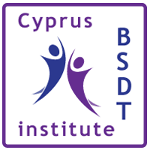Harlene Anderson
Thoughts and Reflections
Words are not mirrors that reflect a fixed meaning; they gain meaning as, and how, we use them. This includes the context in which we use them, our purpose and how we utter them (e.g., our tone, inflections, bodily movements, etc.
In dialog, participants jointly examine, question, wonder, and reflect on the issues at hand. Through these two-way exchanges, participants try to understand each other and the uniqueness of the other’s language and meaning from the other’s perspective, not theirs.
Harlene Anderson
The dialogic nature of consciousness, the dialogic nature of human life itself. The single adequate form for verbally expressing authentic human existence is the open-ended dialogue. Life by its very nature is dialogic. To live means to participate in dialogue: to ask questions, to heed, to respond, to agree, and so forth. In this dialogue a person participates wholly and throughout his whole life: with his eyes, lips, hands, soul, spirit, with his whole body and deeds. He invests his entire self in discourse, and this discourse enters into the dialogic fabric of human life, into the world symposium
Mikhail Bakhtin, 1984
The antithesis between the hero and the compassionate listener can be solved if we think about a kind of dialogue where the therapist has her ideas, sometimes vague, sometimes very well formed hypotheses, and she puts them into play with the client. She can (respectfully, always) argue for her ideas to be understood, but at the same time always leave to clients the last word. With her ideas, hypotheses and emotions that flow freely in the discourse, the therapist does not try to influence her clients (although at time the possibility to enter an influencing stance is strong, and it probably cannot be avoided). She tries, as we saw before, to introduce into the discourse some proposals about “how” things happen, rather than about “why” they happen, or “what” should be done. To have an idea of how such dialogues happen, we have to look closely at the very notion of dialogue, as developed by dialogical theorist Mikhail Bakhtin.
Paolo Bertrando
Dialog, knowledge, and language are evolving, immeasurable interactive social processes, suggesting their mutual transformative nature. “Transformation” or “transforming” seems a more appropriate descriptor than “change” or “changing” as in from–to. Transformation or transforming maintains focus on an ongoing process within the dialog. In living dialogic activity, each participant is influenced: we cannot remain static.
Harlene Anderson
One must be changed in one’s very being, and that can only be effected by being “moved‟ by an other or otherness in ways that one is unable to move oneself
John Shotter
We are born, live, and educated within all-inclusive, monopolizing, and mostly invisible grand knowledge narratives, universal truths, and dominant discourses that we take for granted.
Harlene Anderson



